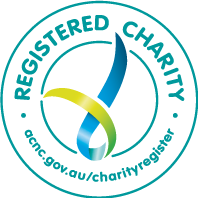Physical care
Warm baths, massage and skin care
Bath time can provide special and relaxing moments together. Playing in water can offer endless fun for children, and there are plenty of sensory toys that you can use at bath time. Water also has therapeutic qualities, and a warm bath can relax muscles and aid sleep.
Try to set aside plenty of time when giving a bath, and remember to keep the bathroom warm and test the temperature of the bath or shower in case it is too hot or too cold.
Following a bath, massage can provide further relaxation, and is a good way to relieve stress and connect with your child or loved one.
 Our Helping Hands
Our Helping Hands
- Tay-Sachs and Sandhoff diseases will gradually affect your child or loved one’s ability to do things that they may have previously been able to do. For example, it may become difficult for them to sit on their own, including in the bath.
- Small children may benefit from having a bath chair. There are many different types available that will fit inside your existing bathtub. These chairs will be height adjustable and some may automatically lift your child out of the water.
- For older and heavier children, you may require a hoist system or bathing trolley. An allied health professional, such as an Occupational Therapist, will be able to help you select products that are both practical and safe.
Modifications and equipment are discussed in further detail under the Mobility section.
Over time, people with Tay-Sachs or Sandhoff disease can become prone to pressure sores (also known as bed sores), as they lose the ability to move on their own. Looking after the skin is important.
Using a good moisturiser or oil can help prevent skin problems such as dryness. Your GP or pharmacist will be able to advise the most appropriate product for your child or loved one. This is also a good opportunity to check the skin for signs of redness or breakdown, which may indicate risk of pressure sores. Areas that can be prone to this are the shoulders, elbows, bottom, hips and the base of the spine.
Those who cannot move independently should be turned regularly and be assessed by an allied health professional, such as an Occupational Therapist, for their need for cushions and padding.
Oral care
Dental hygiene is very important, even if your child or loved one is not being fed by mouth. Teeth and gum problems can develop in those who do not regularly use the muscles in their mouth and throat.
A dentist, nurse or allied health professional, such as an Occupational Therapist or Speech Pathologist, can provide advice on how to care for your child or loved one’s teeth and gums.
Infants and young children with Tay-Sachs or Sandhoff disease may have excess saliva, and so bibs can be a helpful item to protect clothing. Sometimes it can be difficult to find bibs for older children. Rare Find Foundation can provide you with custom-made bibs for your child or loved one as they grow out of those commonly available. Please contact Rare Find Foundation for further information.
Toileting
Infants and young children with Tay-Sachs or Sandhoff disease may require nappies throughout their life. In older children and adults, as the diseases progress, it is likely that they will no longer realise when they need to go to the toilet. This can be very embarrassing and frustrating for them. It is important to introduce pads and other supports sensitively, and your care and support network will be able to help you with this.
Regular bowel habits are important for health and wellbeing. Normal bowel and bladder habits vary from person to person, and changes in health, diet or exercise can make a difference. Constipation may be a problem for many reasons, including lack of physical movement, less fluids or fibre, as a side effect of some medications, or as a symptom of the disease as gut movement is affected.
An allied health professional, such as a Physiotherapist, can provide advice on exercises that may help, and a Dietitian can provide advice regarding diet. Your specialist, palliative care team, GP or nurse may be able to provide advice regarding medications.
Sometimes it can be difficult to find nappies for older children, and they can be expensive. You may also wish to discuss with your NDIS Local Area Coordinator (LAC), about whether you can access financial assistance for continence supplies, such as pads and nappies.
